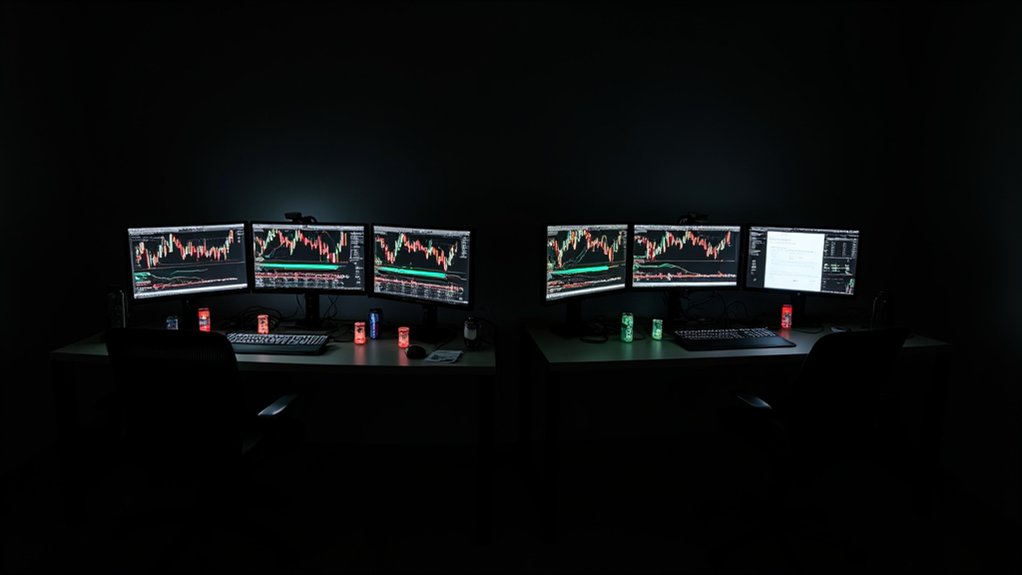EBS and Reuters Matching refers to the electronic order-matching systems operated by two major platforms in the foreign exchange market. EBS (Electronic Broking Services) and Reuters (now Refinitiv) operate competing platforms where banks and financial institutions trade currencies directly with each other. These systems automatically match buy and sell orders based on price and time priority, similar to how a stock exchange matches orders between buyers and sellers.
EBS traditionally dominates trading in euro, Japanese yen, and Swiss franc pairs, while Reuters historically had stronger market share in British pound and other currency pairs. Both platforms provide deep liquidity and tight spreads for institutional forex trading, serving as primary venues where major banks establish benchmark exchange rates that influence pricing across the broader forex market. Many institutions connect to these platforms using FIX API protocol, which enables automated, high-speed trading connections between traders and liquidity providers. The matching process on these platforms directly affects price formation dynamics as aggregated order flow from multiple market participants determines the prevailing exchange rates.
In short: Electronic platforms that automatically match currency buy and sell orders between major banks and financial institutions in the interbank forex market.
Example in Action
A South African bank wants to buy 10 million USD/ZAR at 18.5000, while a London hedge fund wants to sell 10 million USD/ZAR at 18.5000.
Both orders are sent to the EBS matching engine, which instantly pairs them because the price and size match exactly.
The trade executes at 18.5000 for the full 10 million notional, and both parties receive immediate electronic confirmation.
Without the matching system, these two counterparties might never have found each other, or the trade would have taken much longer to negotiate.
This efficient matching process is made possible by the decentralized structure of the forex market, where electronic platforms connect diverse participants across global financial centers. These platforms function differently from Market Maker brokers, which typically act as the counterparty to client trades rather than matching orders between participants.
Why It Matters
Understanding how prices actually form in the global forex market matters enormously to African traders—because whether you're in Lagos or Nairobi, Cairo or Johannesburg, the rate you see on your broker's platform traces back to these institutional venues.
EBS and Reuters Matching set the reference prices that trickle down through banks, brokers, and eventually land on your MT4 screen. Your spread? Starts there.
Common Questions
Can African Retail Traders Directly Access EBS or Reuters Matching Platforms?
African retail traders cannot directly access EBS or Reuters Matching platforms. These institutional venues require substantial capital, interbank credit relationships, and regulatory compliance standards that exclude retail participants. African traders access forex through local brokers who may indirectly source institutional liquidity.
Do African Brokers Use EBS and Reuters Pricing for Local Currency Pairs?
Most African brokers do not use EBS or Reuters pricing for local currency pairs. These platforms focus on major global currencies, while African pairs rely on local banking rates, central bank references, and regional interbank systems for pricing.
How Do Liquidity Gaps Affect Nigerian or Kenyan Traders Using These Systems?
Liquidity gaps widen spreads unpredictably, trigger stop-losses far from intended levels, and cause significant slippage during thin trading periods. Nigerian and Kenyan traders face higher costs, poor fills, and heightened execution risk when accessing these interdealer platforms.
Are Spreads Wider for African Traders Compared to Pricing on EBS?
Yes, African traders typically face wider spreads than EBS benchmarks. Local illiquidity, intermediary margins, capital controls, and limited direct platform access all inflate costs beyond the tight interbank rates available for G10 pairs on EBS.
Which African Banks Have Direct Access to EBS and Reuters Matching?
Standard Bank, FirstRand, Absa, and Nedbank in South Africa maintain direct EBS and Reuters Matching access. Access Bank, Zenith Bank, and Stanbic IBTC in Nigeria, plus Attijariwafa Bank in Morocco, also connect through group infrastructure or correspondent arrangements.
« Back to Glossary Index




